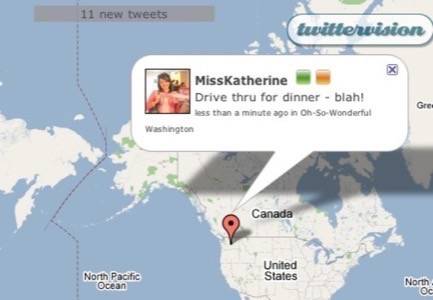This week on Read/WriteTalk I had the opportunity to talk to Biz Stone, co-founder of Twitter. One of the more interesting topics in the podcast was the open platform that Twitter has developed. We also discussed how the team came up with the idea for Twitter, different catalysts over the past year for user growth, and even how they came up with the name. Click here to read a transcript or listen to the full interview.

One of the 10 Future Web Trends mentioned in Richard MacManus’ post earlier today was ‘Web Sites Becoming Web Services’. This theory was originally proposed on R/WW by Alex Iskold back in March. In his post Alex examined both Amazon and Delicious, as case studies of companies using open web services to create competitive advantages. He concluded: “The old perception is that closed data is a competitive advantage. The new reality is that open data is a competitive advantage.”
Excerpt from Interview with Biz Stone
Similar to Alex’s theory, I asked Biz how much he felt their open platform was a competitive advantage for Twitter. His response (emphasis mine):
“The API has been arguably the most important, or maybe even inarguably, the most important thing weÄôve done with Twitter. It has allowed us, first of all, to keep the service very simple and create a simple API so that developers can build on top of our infrastructure and come up with ideas that are way better than our ideas …
So the API, which has easily 10 times more traffic than the website, has been really very important to us. WeÄôve seen some amazing work built on top of it from tiny little mobile applications like an SMS timer that just allows you to set a reminder over SMS to call your mom or something like that, to more elaborate visual recreations of Twitter like twittervision.com, which shows an animated map of the world and what everyoneÄôs doing around the world with Twitter. … The [Twitter] API has really been a big success for us, and itÄôs something that we want to continue to focus our efforts on, looking forward.”

Investors Appreciate the API Too
While Biz didn’t comment on details of their business model during the interview, I scanned the blogs of Twitter’s investors and it was obvious the Open APIs were compelling to them. For example, Fred Wilson explained during his post on the Twitter Investment:
“After Facebook, I think Twitter is the most interesting API that people are building to these days… The breadth of activity in the Twitter ecosystem is astounding. Open systems that support emergent behavior are way more likely to become platforms and we are excited by the possibilities of new consumer facing web platforms.”
Another one of Twitter’s investors, Dick Costello, (co-founder of FeedBurner, which Google acquired this year) seems to agree:
“Pay careful attention to the things that people do with your technology/service/product, because some of them may have discovered a powerful use for it that has completely evaded you. Note that this is another reason to strongly believe that services and products that are more open and adaptive will always prevail over solutions that are less open. Open solutions enable the ecosystem to discover the optimal value of the solution, whereas less open systems are at the mercy of their creator having guessed at the optimal solution in the first place.”
Conclusion
As more and more companies continue to realize that open systems lead to a competitive advantage, it’s clear that the future of the Web will include more and more open web services. A couple of the implications of this shift include:
- Picking up on a meme that was very popular last year, the emergence of business development 2.0. This can be summarized as partnerships being developed through product synergies, using publicly available APIs instead of months of meetings.
- As more and more companies drive traffic through their APIs, more creative business models will evolve to ensure that the companies offering the Open APIs are getting appropriately compensated. Currently the standard models appear to be limited to charging a fee or driving traffic back to the web service’s site.
I’m sure there are many more implications and we’d love to read your thoughts on this in the comments below.
If you enjoyed this post, consider visiting Read/WriteTalk and subscribing in iTunes or via RSS.





